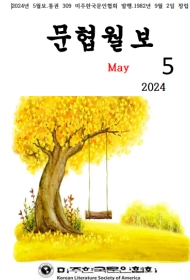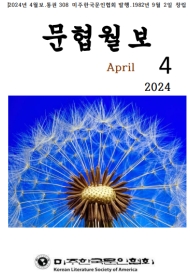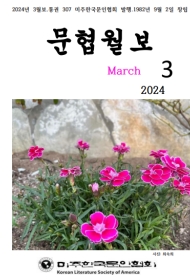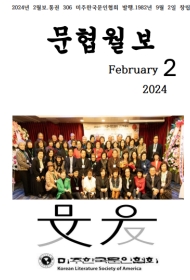"The Sorrows of Young Werther"
2014.05.28 06:16
"The Sorrows of Young Werther"
===============================
Wolran Kim
January 2014
The Sorrows of Young Werther can be read as a surfeited love story to the moderns if the historical background is ignored. In the 18th century, Goethe’s new attempt must be read with a much bigger wavelength and impression. This is the reason why this epistolary novel is loved even now as a classic. The title implies the author’s intentions and characteristics of a protagonist.
“The Sorrows” refers to Sentimentalism, which regards emotion rather than reason, “Young” refers to Storm and Stress (Sturm und Drang) compared to old, and “Werther” has the image of a worthy name, who struggles between reality and ideals. Thus, this book is significant as a problem novel with The Werther Effect and sensation to youths rather than Goethe’s great success. Then, who is Charlotte, who takes away Werther’s burning soul and even his life in the end? Lotte is not just an erotic lover who has intelligence and beauty, but is the metaphor of an impossible and noble dream to Werther who has boiling blood over a philosophical agony of existence.
Werther is a young bourgeois dilettante. He is intelligent but arrogant, and artistic but unmotivated. He escaped from reality and work to Wahlheim (symbol of his new home) as a hermit, and dreams of a peaceful life in nature and art. However, he goes through the age of Storm and Stress because of the lovely Lotte, who already has a fiancé. The scene of the first sentimental bonds between Werther and Lotte shows the virtuosity of the character Werther and his socio-historical background.
"We walked over to the window. Thunder rumbled in the distance, a splendid rain was falling on the land, and the most refreshing scent rose up to us in the fullness of a rush of warm air. She stood leaning on her elbows, her gaze penetrating the scene; she looked up at the sky and at me, I could see tears in her eyes, she put her hand on mine and said, Klopstock! – I immediately recalled the splendid ode that was in her thoughts, and I sank into the flood of feelings that she poured over me with this byword. I could not bear it, I bowed over her hand and kissed it as I wept the most blissful tears (20)."
Commonly, lovers share their emotions by understanding each other’s thoughts. So, they do not have much to say. A few words and eye contact from their souls are all that is needed to them. This special scene that is compressed to a single word, “Klopstock!” shows the beginning and the representation of love. This scene starts with thunder. Thunder refers to Werther’s time of Storm and Stress, and “splendid rain” portrays his feeling of love toward Lotte. The stormy weather identifies with Werther: interestingly, Werther and the weather are quite similar. Weather is as unpredictable as Werther’s mood. Werther’s temper is often stormy in both a good and bad way. Thunder is the expression of the power of human feeling as a natural power.
Storm and Stress is a German literary movement, a symbol of Romanticism from 1760 to 1780. This movement is represented as feelings of a passionate love, romantic swirling, desire, anguish, despair, tears, hope, and longing from human instincts of the deviant or decadent sensibility. Storm and Stress describes shortly adolescent Werther’s joy and sorrow through his social anguish and passion of love toward Lotte.
German society at this time was mentally and physically miserable from the corruption of a divided empire and bigoted class-consciousness. Rousseau’s French Naturalism was also exclaimed as the liberation of the human inner world at this time. Goethe shows Werther’s emotional undulations and character through praise and the logic of the natural world. Goethe was the leading role of Storm and Stress, and Werther was the production of this flowing.
Interestingly, the expression of “rumbled” is used for sexual meaning, such as “rumble horizontally,” and this seems to be a symbol of libido. “The most refreshing scent” and “warm air” represent Werther’s feelings toward Lotte. The fact of being with a lover stimulates all senses. Lotte’s “penetrating” character is one of the reasons Werther falls in love with her. “Sky,” “me,” and “tear” each show reverence for God, sympathy between Werther and Lotte, and sentimentalism. The key word of this scene, “Klopstock” is understood by Werther, but readers would never understand if they did not know who he is. Werther is in “the most blissful tears,” because he knew about this poet and his Die Fruhlingsfeier (Celebration of Spring).
Klopstock was recognized as a synonym of divine nature’s observation to the Germans in those days. Werther and Lotte share their emotional and intelligent sympathy through this single word. Werther keeps expressing his intellectual desire such as in the May 13th letter that Homer’s poetry is described as a lullaby for a sick little child as if it were Werther himself. Homer continues to emerge as his favorite poet during the first half of the book. Werther represents a reading addiction, and must have given a positive effect to the book market at that time.
However, this scene seems contradictory because a very personal and sensitive expression of love is ended by a single word, the name of a poet. On the other hand, temperate emotions of Werther and Lotte make it look like their love is a sacred Agape rather than secular Eros. In this theatrical scene, Lotte’s tears are the humaneness toward piety of nature, and Werther’s is an impression toward his lover.
The expression of Lotte’s pure emotion in front of Werther is enough reason for Werther’s teary impress. Sentimentalism was a literary mode in the 18th century (1740-1780) against Classicism and the Enlightenment, and the tendency to emancipate internal feelings rather than reason. European sentimentalism arose during the Age of Enlightenment (late 17th~18th century), and this age emphasized reason and individualism rather than tradition. Goethe’s The Sorrows of Young Werther is a creature of this age.
The first encounter of Werther and Lotte shows very clearly that Lotte is the symbol of Werther’s ideal dream and hope in his practical agony.
"I caught sight of the most charming spectacle that I have ever witnessed. In the vestibule six children from eleven to two years old crowded around a girl with a lovely figure, of medium height, wearing a simple white dress with pink ribbons on her sleeves and at her breast. She was holding a loaf of black bread and cutting off a slice for each of the little ones surrounding her, in proportion to their age and appetite, giving it to each one with such kindness, each shouting out so unaffectedly their Thank you! (15)"
In this scene, Lotte seems as beautiful and peaceful as the Christ figure in the Bible. Jesus gives a love for children with words, “unless you change and become like little children, you will never enter the kingdom of heaven” (Oxford Annotated Bible, Matt. 18.3). The “a loaf of black bread” is also reminiscent of Jesus’ miracle of the five loaves and two fish, and Lotte looks like a symbol of mercy. Lotte’s appearance is elegant and frugal, rather than shallow and luxurious by describing “simple white dress” and “pink ribbons.” Lotte’s “black bread” implies a social conflict contrasting with the nobility’s white bread.
Lotte is depicted with the purity of a virgin and beauty of nature, therefore her perfect figure meets the image of Werther’s ideal. Actually, Werther portrays Lotte like this, “And yet I am quite unable to tell you how perfect she is and why she is perfect; it’s enough to say that she has captivated all my senses (14).” Werther emphasizes Lotte’s perfectness, but ironically, this perfect image becomes the reason for the unrealistic appearing of the character Lotte, rather than giving a good excuse to Werther’s emotional justification.
Werther is already inflamed about feudal society, thus his love toward the engaged Lotte is the same as the struggle to break down barriers of reason in reality. This scene can be drawn as a conflict between emotion and reason, and between the civil and feudal systems. Lotte plays as the intermediary role in this complication. As in Werther’s lamentation, “Does it have to be this way, that whatever it is that makes a man blissfully happy in turn becomes the source of his misery? (38)” Lotte is Werther’s happiness but also misery. After all, Werther’s love is not only a personal tragedy but also an individual resistance against a social system. She is an unattainable lover, practically who is engaged to a reasonable character. Lotte is not only an erotic object of love, but also the young Werther’s lofty ideal in his age of Storm and Stress.
===============================
Wolran Kim
January 2014
The Sorrows of Young Werther can be read as a surfeited love story to the moderns if the historical background is ignored. In the 18th century, Goethe’s new attempt must be read with a much bigger wavelength and impression. This is the reason why this epistolary novel is loved even now as a classic. The title implies the author’s intentions and characteristics of a protagonist.
“The Sorrows” refers to Sentimentalism, which regards emotion rather than reason, “Young” refers to Storm and Stress (Sturm und Drang) compared to old, and “Werther” has the image of a worthy name, who struggles between reality and ideals. Thus, this book is significant as a problem novel with The Werther Effect and sensation to youths rather than Goethe’s great success. Then, who is Charlotte, who takes away Werther’s burning soul and even his life in the end? Lotte is not just an erotic lover who has intelligence and beauty, but is the metaphor of an impossible and noble dream to Werther who has boiling blood over a philosophical agony of existence.
Werther is a young bourgeois dilettante. He is intelligent but arrogant, and artistic but unmotivated. He escaped from reality and work to Wahlheim (symbol of his new home) as a hermit, and dreams of a peaceful life in nature and art. However, he goes through the age of Storm and Stress because of the lovely Lotte, who already has a fiancé. The scene of the first sentimental bonds between Werther and Lotte shows the virtuosity of the character Werther and his socio-historical background.
"We walked over to the window. Thunder rumbled in the distance, a splendid rain was falling on the land, and the most refreshing scent rose up to us in the fullness of a rush of warm air. She stood leaning on her elbows, her gaze penetrating the scene; she looked up at the sky and at me, I could see tears in her eyes, she put her hand on mine and said, Klopstock! – I immediately recalled the splendid ode that was in her thoughts, and I sank into the flood of feelings that she poured over me with this byword. I could not bear it, I bowed over her hand and kissed it as I wept the most blissful tears (20)."
Commonly, lovers share their emotions by understanding each other’s thoughts. So, they do not have much to say. A few words and eye contact from their souls are all that is needed to them. This special scene that is compressed to a single word, “Klopstock!” shows the beginning and the representation of love. This scene starts with thunder. Thunder refers to Werther’s time of Storm and Stress, and “splendid rain” portrays his feeling of love toward Lotte. The stormy weather identifies with Werther: interestingly, Werther and the weather are quite similar. Weather is as unpredictable as Werther’s mood. Werther’s temper is often stormy in both a good and bad way. Thunder is the expression of the power of human feeling as a natural power.
Storm and Stress is a German literary movement, a symbol of Romanticism from 1760 to 1780. This movement is represented as feelings of a passionate love, romantic swirling, desire, anguish, despair, tears, hope, and longing from human instincts of the deviant or decadent sensibility. Storm and Stress describes shortly adolescent Werther’s joy and sorrow through his social anguish and passion of love toward Lotte.
German society at this time was mentally and physically miserable from the corruption of a divided empire and bigoted class-consciousness. Rousseau’s French Naturalism was also exclaimed as the liberation of the human inner world at this time. Goethe shows Werther’s emotional undulations and character through praise and the logic of the natural world. Goethe was the leading role of Storm and Stress, and Werther was the production of this flowing.
Interestingly, the expression of “rumbled” is used for sexual meaning, such as “rumble horizontally,” and this seems to be a symbol of libido. “The most refreshing scent” and “warm air” represent Werther’s feelings toward Lotte. The fact of being with a lover stimulates all senses. Lotte’s “penetrating” character is one of the reasons Werther falls in love with her. “Sky,” “me,” and “tear” each show reverence for God, sympathy between Werther and Lotte, and sentimentalism. The key word of this scene, “Klopstock” is understood by Werther, but readers would never understand if they did not know who he is. Werther is in “the most blissful tears,” because he knew about this poet and his Die Fruhlingsfeier (Celebration of Spring).
Klopstock was recognized as a synonym of divine nature’s observation to the Germans in those days. Werther and Lotte share their emotional and intelligent sympathy through this single word. Werther keeps expressing his intellectual desire such as in the May 13th letter that Homer’s poetry is described as a lullaby for a sick little child as if it were Werther himself. Homer continues to emerge as his favorite poet during the first half of the book. Werther represents a reading addiction, and must have given a positive effect to the book market at that time.
However, this scene seems contradictory because a very personal and sensitive expression of love is ended by a single word, the name of a poet. On the other hand, temperate emotions of Werther and Lotte make it look like their love is a sacred Agape rather than secular Eros. In this theatrical scene, Lotte’s tears are the humaneness toward piety of nature, and Werther’s is an impression toward his lover.
The expression of Lotte’s pure emotion in front of Werther is enough reason for Werther’s teary impress. Sentimentalism was a literary mode in the 18th century (1740-1780) against Classicism and the Enlightenment, and the tendency to emancipate internal feelings rather than reason. European sentimentalism arose during the Age of Enlightenment (late 17th~18th century), and this age emphasized reason and individualism rather than tradition. Goethe’s The Sorrows of Young Werther is a creature of this age.
The first encounter of Werther and Lotte shows very clearly that Lotte is the symbol of Werther’s ideal dream and hope in his practical agony.
"I caught sight of the most charming spectacle that I have ever witnessed. In the vestibule six children from eleven to two years old crowded around a girl with a lovely figure, of medium height, wearing a simple white dress with pink ribbons on her sleeves and at her breast. She was holding a loaf of black bread and cutting off a slice for each of the little ones surrounding her, in proportion to their age and appetite, giving it to each one with such kindness, each shouting out so unaffectedly their Thank you! (15)"
In this scene, Lotte seems as beautiful and peaceful as the Christ figure in the Bible. Jesus gives a love for children with words, “unless you change and become like little children, you will never enter the kingdom of heaven” (Oxford Annotated Bible, Matt. 18.3). The “a loaf of black bread” is also reminiscent of Jesus’ miracle of the five loaves and two fish, and Lotte looks like a symbol of mercy. Lotte’s appearance is elegant and frugal, rather than shallow and luxurious by describing “simple white dress” and “pink ribbons.” Lotte’s “black bread” implies a social conflict contrasting with the nobility’s white bread.
Lotte is depicted with the purity of a virgin and beauty of nature, therefore her perfect figure meets the image of Werther’s ideal. Actually, Werther portrays Lotte like this, “And yet I am quite unable to tell you how perfect she is and why she is perfect; it’s enough to say that she has captivated all my senses (14).” Werther emphasizes Lotte’s perfectness, but ironically, this perfect image becomes the reason for the unrealistic appearing of the character Lotte, rather than giving a good excuse to Werther’s emotional justification.
Werther is already inflamed about feudal society, thus his love toward the engaged Lotte is the same as the struggle to break down barriers of reason in reality. This scene can be drawn as a conflict between emotion and reason, and between the civil and feudal systems. Lotte plays as the intermediary role in this complication. As in Werther’s lamentation, “Does it have to be this way, that whatever it is that makes a man blissfully happy in turn becomes the source of his misery? (38)” Lotte is Werther’s happiness but also misery. After all, Werther’s love is not only a personal tragedy but also an individual resistance against a social system. She is an unattainable lover, practically who is engaged to a reasonable character. Lotte is not only an erotic object of love, but also the young Werther’s lofty ideal in his age of Storm and Stress.
댓글 0
| 번호 | 제목 | 글쓴이 | 날짜 | 조회 수 |
|---|---|---|---|---|
| 10259 | 꽃 학교, 시 창작반 | 성백군 | 2014.06.14 | 1 |
| 10258 | 감나무 같은 사람 | 김사빈 | 2014.06.14 | 2 |
| 10257 | 통곡의 벽 | 이월란 | 2014.06.14 | 2 |
| 10256 | 불면증 | 이월란 | 2014.06.14 | 4 |
| 10255 | 30달러의 행복 | 이영숙 | 2014.06.10 | 1 |
| 10254 | 여보게 젊은이, 그대 부모님은 안녕하신가 | 박영숙영 | 2014.06.10 | 7 |
| 10253 | 나에게 날개가 있다면 | 김수영 | 2014.06.08 | 31 |
| 10252 | 유월의 추억 | 김수영 | 2014.06.08 | 8 |
| 10251 | 오월의 아카사아 | 성백군 | 2014.06.08 | 45 |
| 10250 | 6월의 창 | 강민경 | 2014.06.08 | 6 |
| 10249 | 행복이란 무엇일까? | sonyongsang | 2014.06.05 | 10 |
| 10248 | 나 항상 그대를 | 이상태 | 2014.06.02 | 9 |
| 10247 | 김우영 작가의 한국어 이야기 ] 글 고치기와 띄어쓰기 | 김우영 | 2014.06.01 | 9 |
| 10246 | 벽거울 | 이월란 | 2014.05.28 | 9 |
| 10245 | 길고양이 | 이월란 | 2014.05.28 | 8 |
| 10244 | 당신을 읽다 | 이월란 | 2014.05.28 | 9 |
| 10243 | Who slandered Josef K. in Franz Kafka’s "The Trial"? | 이월란 | 2014.05.28 | 7 |
| 10242 | "ON THE GENEALOGY OF MORALS" | 이월란 | 2014.05.28 | 6 |
| 10241 | Multiple Identities in "Steppenwolf" | 이월란 | 2014.05.28 | 4 |
| » | "The Sorrows of Young Werther" | 이월란 | 2014.05.28 | 111 |












